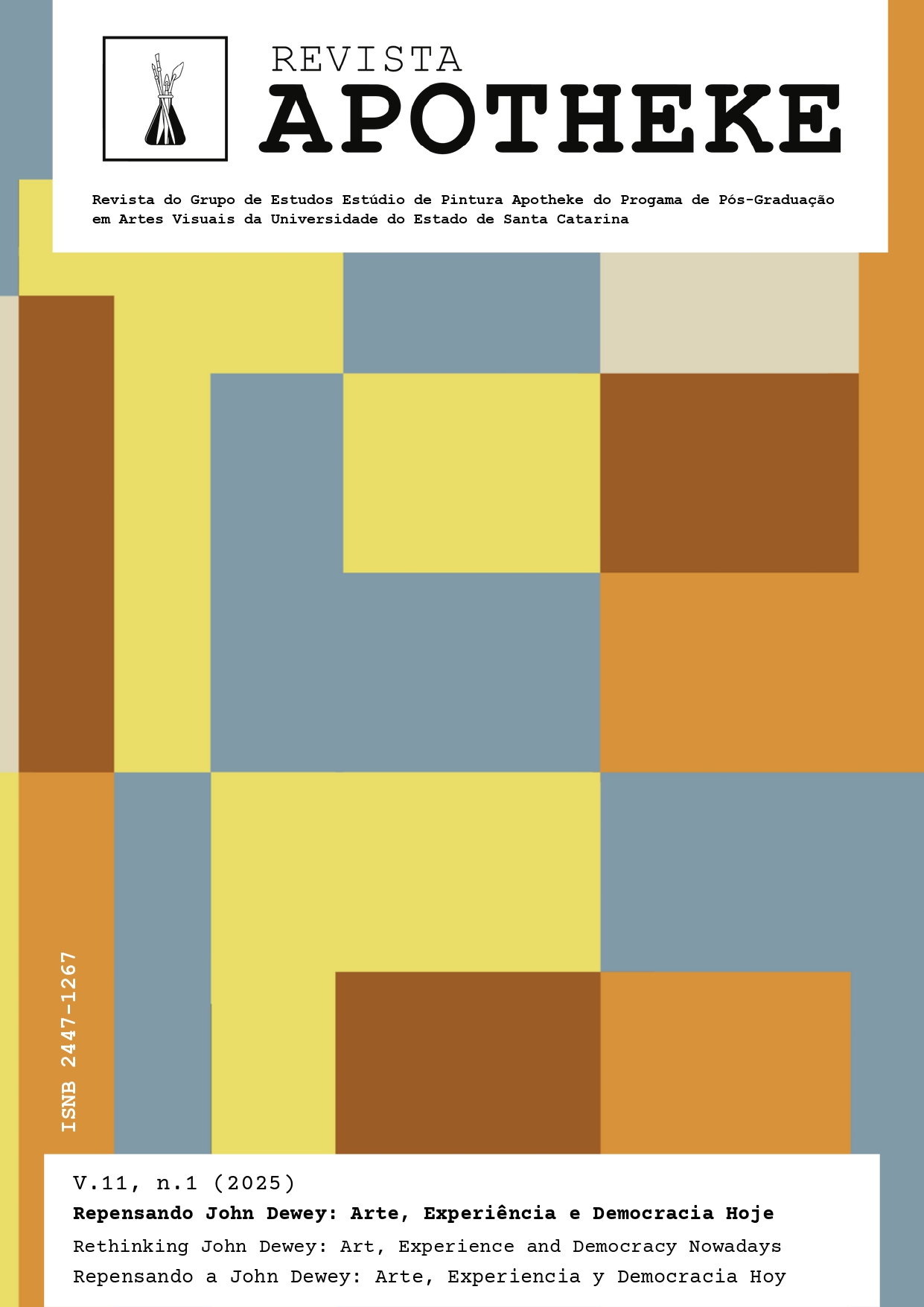The new dimension of the concept of experience in John Dewey: continuity between theory and practice
DOI:
https://doi.org/10.5965/244712671112025083Keywords:
Knowledge, Experience, John Dewey, Practice, TheoryAbstract
The goal of this paper is to approach John Dewey’s concept of experience and its epistemological implications when it comes to the relations between theory and practice. With a distinction from notions from the British empiricism and from the Kantian transcendental system, the text explores through which ways the notion of Dewey’s “naturalist empiricism”, in proposing a resizing of the notion of what constitutes experience, allows comprehending it as something more profound than the mere sensitive perception of reality but a means of properly penetrating reality and relating to it. Thus, our thesis is that there is a gain also in the conception of what knowledge is, how it’s formed and how it interferes in experience. For empirical sciences as much as for philosophy, knowledge in Dewey is related to the glimpse of new meaning relations in experience and new possibilities of comprehension and action – thus the deeper relation amongst theory and practice.
Downloads
References
DEWEY, John. Democracy and Education: an introduction to the philosophy of education. 1ª edição. New York: The Macmillan Company, 1930.
DEWEY, John. Experience and Nature. London: George Allen & Unwin, 1929.
DEWEY, John. How We Think. Boston, New York, Chicago: D.C. Heath & Co. Publishers, 1910.
DEWEY, John. Logic: The Theory of Inquiry. New York: Henry Holt and Company, 1938.
DEWEY, John. The Quest for Certainty: a study of the relation of knowledge and action. New York: Minton, Balch & Company, 1929.
HILDEBRAND, David. John Dewey. The Stanford Encyclopedia of Philosophy (Summer 2024 Edition), Edward N. Zalta & Uri Nodelman (eds.), URL = <https://plato.stanford.edu/archives/sum2024/entries/dewey/>. Versão impressa.
TEIXEIRA, Anísio; WESTBROOK, Robert B. John Dewey. José Eustáquio Romão, Verone Lane Rodrigues (org.). Recife: Editora Massangana, 2010.
Downloads
Published
How to Cite
Issue
Section
License
Copyright (c) 2025 Antonio Frederico Saturnino Braga, Mariana Oliveira dos Santos Tartaglia

This work is licensed under a Creative Commons Attribution-NonCommercial 4.0 International License.
Copyright and Licensing Policy
Authors of works submitted to Revista APOTHEKE authorize their publication in both print and digital formats exclusively for academic purposes. Reproduction is permitted, provided that the source is properly cited. Authors confirm the originality, authorship, and unpublished status of their manuscripts.
Articles published by the journal are freely available and intended for academic and non-commercial use only. All copyrights are transferred to the journal. The content of signed articles reflects the views of their respective authors and not the official position of Revista Apotheke. The author(s) agree to always cite the following reference when republishing or referring to the content originally published in Revista Apotheke:
“This article was originally published by Revista Apotheke in volume (insert volume), number (insert number), year (insert year), and is available at: http://www.revistas.udesc.br/index.php/APOTHEKE/index”
It is the sole responsibility of the authors to obtain written permission for the use of any material protected by copyright law included in their articles. Revista Apotheke is not responsible for copyright infringements committed by contributors.
Authors retain copyright and grant the journal the right of first publication, with the work licensed under a Creative Commons Attribution-NonCommercial License (CC BY-NC):
-
Attribution (BY): Licensees are allowed to copy, distribute, display, perform, and create derivative works, provided that proper credit is given to the author or licensor, in the manner specified.
-
NonCommercial (NC): Licensees may use the material only for non-commercial purposes.
After publication, authors retain the rights to their work and may republish the text.



